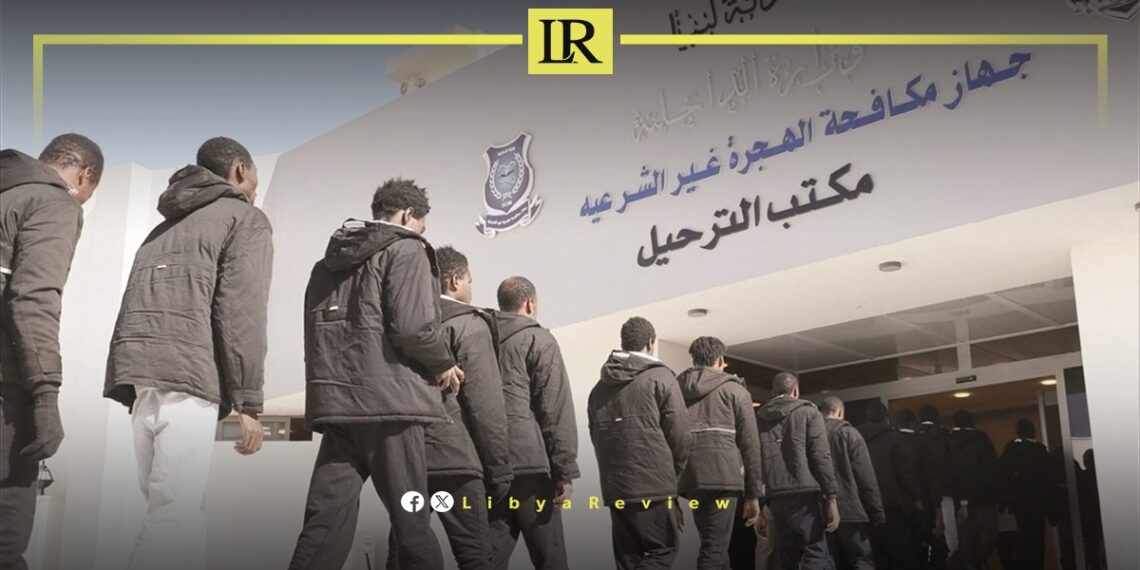The Anti-Illegal Immigration Authority, Greater Benghazi branch, announced on Tuesday the detention of 2,017 illegal migrants from June 23, 2024, to July 23, 2024.
According to a statement from the authority’s media office on their Facebook page, among the detained migrants, 145 were found to be infected with Hepatitis C and B, and five others were infected with HIV/AIDS.
The statement indicated that necessary measures are being taken to repatriate the migrants to their home countries and to regularize the status of others according to the legal procedures followed within the state.
On Tuesday, Libya repatriated 369 irregular migrants to Nigeria and Mali, including over one hundred women and children, according to an official statement to AFP.
Mohammed Baredaa, head of the Libyan Interior Ministry’s organization tasked with halting irregular migration, confirmed that two repatriation flights transported 204 Nigerians and 165 Malians. Among the Nigerian migrants were nine babies, 18 minors, and 108 women, Baredaa reported.
The flights were conducted in coordination with the International Organization for Migration (IOM), which provides free return flights to migrants and assists in their reintegration through its voluntary humanitarian return program.
However, some migrants alleged that they were forcibly deported. Hakim, a 59-year-old Nigerian who has lived in Libya for 25 years, recounted how authorities “came at night and broke down the door.” He claimed they confiscated his passport before detaining him and his wife for repatriation.
Libya is grappling with the aftermath of years of war and chaos following the 2011 NATO-backed overthrow of longtime leader Moammar Gaddafi. The instability has allowed smugglers and human traffickers to flourish. The country has faced criticism for its treatment of migrants and refugees, with human rights groups accusing authorities of extortion and slavery.
Located about 300 kilometers (186 miles) from Italy, Libya serves as a major departure point for migrants, primarily from sub-Saharan Africa, who risk perilous Mediterranean Sea journeys to reach Europe. Despite efforts by Libya and the European Union to curb irregular migration, many migrants remain stranded in Libya.


